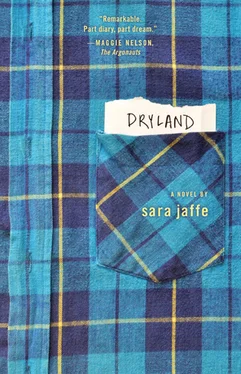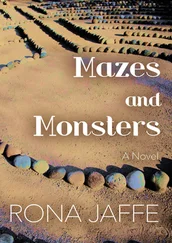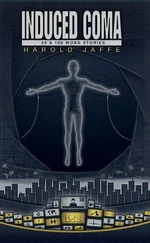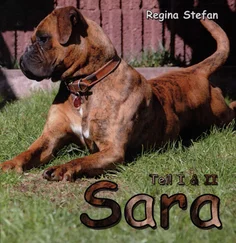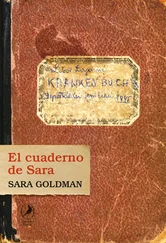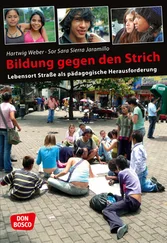I took a stroke, a kick, and the hand tapped my foot again.
The tap was impatient and precise. It was a code: Let me pass.
The T painted on the pool bottom meant the deep-end wall was near. I reached and reached forward, bracing for pecks at my heels. I touched the wall and found descending on me the tapper — who gave a quick salute, turned, and swam off — and two more behind him, snared in the pileup. The two slapped the wall and continued. There-back. I felt fiery. What were they, all three of them, doing in Lane Four? Who were they but the types who downplayed their skills to shock with their prowess, who set themselves up to be big fish in small ponds? I pushed off, in their wake, but something had splintered. I slapped at the water. My arms were boards, my legs were soaked sticks. I pulled hard with my right arm and almost went head-on with someone — not, please, Erika — sailing from the opposite direction. I swiped at the water. The current churned against me and my breath pulled ragged. I pummeled the water. I dug bottomless, ridiculous holes in it.
The T, finally, painted on the floor — the flags I glimpsed when I craned my neck to pull another breath — meant that the wall was near. The wall was so near and the water was shallow enough that I could stop and stand and walk the rest of the way. I hacked one stroke, another, but why bother? I stilled my legs and arms and let my feet sink to the floor. I felt the smooth floor on my feet. I felt how solid and unmoving the poured concrete wall would feel when I let myself lean against it.
I leaned and heaved breaths against the shallow-end wall. From Lane One down to Six, I was the only unmoving body in the pool. Lane One swimmers moved so fast that they became, just a bathing-capped heads and mouths turned when breathing, foot-soles flashing at the top of a flip turn. For as fast as they moved, their lane looked quiet. Lane Six was all splashes and separate bodies, swimsuits in colors too loud. The redheaded girl was choppy but strong, easily lapping the strivers and floaters, the wistful twigs she shared the lane with. I pressed myself into the corner made by the lane line and the wall. Swimmers in my lane came toward me and, at the last second, cut a diagonal to touch the wall, pivot, and push off for the other end. Erika was coming down the lane and I willed her not to notice me. I willed her, if she saw me, to see me only as a pair of legs, another goggled face. I willed myself indistinguishable. She took another stroke toward me — Oh, just a leg cramp. She was an arm’s reach away — Just a side cramp, just sitting a few laps out. She cut a diagonal and pushed off again.
Coach said, Julie-Julie! He squatted at my shoulder. He said, What’s happening?
I said, Leg cramp.
Coach said, Do you have an injury I should know about? The concern that furrowed his brow looked real.
I said, I don’t think so. I tensed my calf muscle as tight as I could. I said, It’ll work itself out. I’m just going to sit out a lap or two.
Coach, still furrowed, said, Okay, as if he didn’t believe I was as okay as I said I was, which was better, in the moment, than the opposite. He said, You’ll let me know if you need anything? He rose from his squat and walked away.
At the end of practice Coach gathered us again on the bleachers. He said, We won’t do this every day. He said, Now close your eyes. This is just a little something I picked up along the way. I want you all to think about who you want to be out there in the water over the next few months. Think big. Think a Spitz or an Evans. He said, Or don’t think of some champion. Forget the fish. Think of you. See yourself as a champion. See you beating your personal best. See you housing that flip turn. See it.
The bleachers were silent. All the swimmers with their eyes closed, breathing, seeing something. I let my eyelids touch and waited for my brother to lope into the frame. All I saw — not even saw, but thought of — was a magic trick I’d had as a kid, a coloring book that, depending where you flipped the pages, showed colored-in drawings, then outlines, then nothing. I opened my eyes. Even Coach was doing it. He leaned forward a little, on the balls of his feet, his lips moving slightly. The pool was placid. The reflection from the high-above lights caught and floated on the water. It rippled and lolled there. I should never have gotten on the bus. Something more, or different, was supposed to have happened. Coach opened his eyes and saw me. He raised his eyebrows and touched his eyes, as if it mattered that we kept our eyes closed for the entire duration of his pointless meditation. I closed my eyes and saw nothing until the whistle shrilled me out of it.
ERIKA SAID, YOUknow who I thought of? It didn’t seem like something she should want to tell me. She said, Don’t laugh. Wonder Woman.
I said, Wonder Woman swims?
Erika said, I’m sure. Wonder Woman is tough. She said, Jules.
It was dark outside already. The bus sat in traffic on the bridge across the river. The roadway tremored as cars moved above us.
Erika said, It was the first day.
Out the window, past the glare of our reflections, was the inky river and lights from bridges. Invisible, unstopping rain. I said, Coach is going to give me some stretches to do for my leg. Lights swam past the window in the swimming night. I said, Coach said it would work itself out.
After the bus dropped us back at school and Erika took off for her mom’s a few blocks away, I stood for a minute by the Elizabeth Street doors watching juniors and seniors walk to their cars. Alexis and Greg separated off from the pack of their friends and walked to a silver Taurus. Alexis got into the driver’s seat and turned the headlights on. Montview, or SW 37th, wasn’t far from me. Who knew where Greg lived. If she gave me a ride it might be more convenient for her to take Greg home first. The Taurus drove past me and the street was black and shiny with rain.
I touched my hair. It was definitely wet, but it was raining enough that I could explain it that way. I stuffed my swim bag in my backpack and went inside to call my dad. He said he’d be over as soon as he put the chicken in. I took the long way to the main doors where he’d pick me up, past the small gym, which doubled as a cafeteria during lunch. Just past the gym was a trophy case crammed with double-handled cups for football, a plaque with a photo of a kid from the eighties who’d made the major leagues. My dad wouldn’t be there for ten minutes at least. In the glass front of the case, my reflection hazed back at me. I had never thought of swimming as a regular sport. I took off my backpack. I crouched. On the lowest shelf of the case, on the right-hand side, was a cup engraved with a silhouette of a swimmer reaching. There was a trophy topped with a figure midstroke, another with a figure perched for a dive. Hamburger grease wafted from the small gym. My breath fogged the glass. There were more gold trophies and cups than the shelf could hold, and they all had my brother’s name on them.
BEING IN THEcar with my dad was quiet except for the scatter of rain on the windshield and the swoosh of the windshield wipers and the radio newscaster’s deep, even voice. I brought my hand to my nose and breathed in hard — the thick scent of Erika’s apricot lotion I’d slathered on and a hint of chlorine beneath. My brother had gathered a bunch of the trophies we had around the house and taken them with him to San Diego. I didn’t know what he’d done with them after. My instinct when I saw the trophies in the case was to press my hands against the glass to cover them. I didn’t want to think about the people who’d looked in and seen them before. My dad turned the wipers up a notch. All I had to say was What happened to Jordan’s trophies? or How did some of them end up in the case at school? but I couldn’t explain why I wanted to know. What was I supposed to get from knowing that? The smooth-voiced announcer said, Turning now to the Balkans.
Читать дальше
